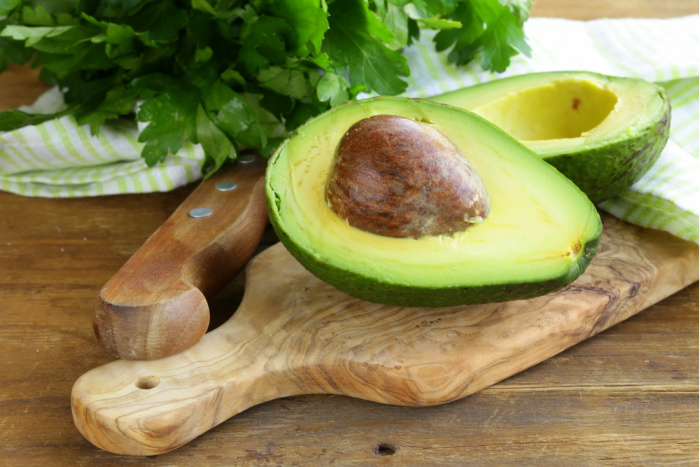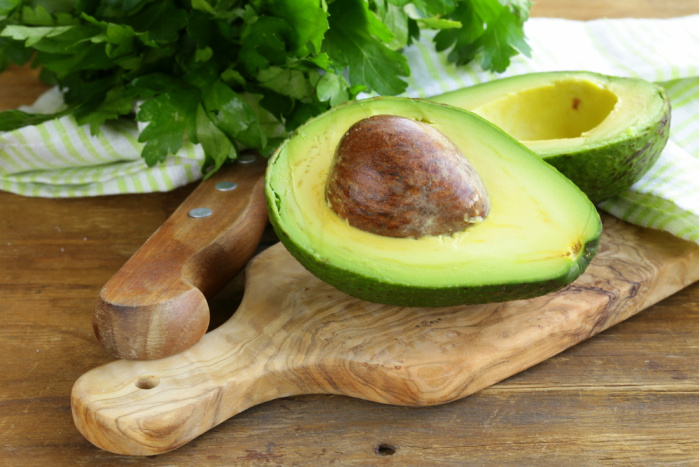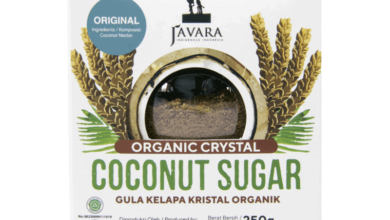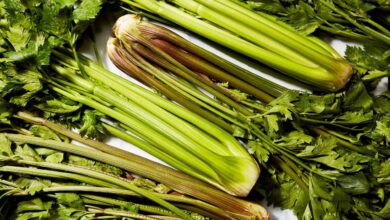
Everything You Need to Know About Avocados
Everything you need to know about avocados: from their origins to their culinary versatility, these creamy green gems have captivated taste buds and health enthusiasts alike. This guide delves into the fascinating world of avocados, uncovering their nutritional secrets, diverse varieties, and endless culinary possibilities.
Whether you’re a seasoned avocado aficionado or a curious newcomer, prepare to be amazed by the depth and breadth of this remarkable fruit.
Avocados, scientifically classified as Persea americana, are a unique fruit with a rich history and a place in cultures around the world. Native to Central and South America, avocados have been cultivated for centuries, their creamy flesh and unique flavor captivating taste buds across continents.
Beyond their culinary appeal, avocados are a nutritional powerhouse, packed with healthy fats, vitamins, and minerals that contribute to overall well-being.
Culinary Uses
Avocados are a versatile fruit with a creamy texture and mild flavor, making them a popular ingredient in a wide range of dishes. Their culinary applications extend beyond simple salads and dips, encompassing a diverse array of recipes that showcase their unique properties.
Methods for Preparing Avocados
The method of preparing avocados depends on the intended culinary use. Here are some common methods:
- Slicing:Avocados can be sliced lengthwise or crosswise, depending on the desired shape. Sliced avocados are often used in salads, sandwiches, and as a garnish.
- Dicing:Dicing avocados involves cutting them into small cubes, which can be used in salsas, guacamole, and various other dishes.
- Mashing:Mashing avocados creates a smooth, creamy texture that is perfect for dips, spreads, and sauces.
- Pureeing:Pureeing avocados using a blender or food processor results in a silky smooth consistency that can be incorporated into smoothies, soups, and desserts.
Culinary Applications of Avocados
Avocados are a versatile ingredient that can be incorporated into various dishes, including:
- Salads:Sliced or diced avocados add a creamy texture and richness to salads. They complement a variety of greens, vegetables, and proteins.
- Dips:Avocado dips, such as guacamole, are a popular appetizer and snack. They are typically made with mashed avocado, lime juice, cilantro, and other spices.
- Sandwiches:Sliced avocados can be added to sandwiches for a creamy and flavorful filling. They pair well with chicken, tuna, and other savory ingredients.
- Desserts:Avocados can be used to create unique and healthy desserts. They can be blended into smoothies, incorporated into mousse, or used as a base for vegan ice cream.
- Main Courses:Avocados can be incorporated into main courses, such as tacos, burritos, and pasta dishes. They add a creamy and flavorful element to these dishes.
Avocado Toast
Avocado toast is a popular breakfast or brunch dish that showcases the versatility of avocados.
Avocados are a nutritional powerhouse, packed with healthy fats, fiber, and vitamins. They’re versatile in the kitchen, from creamy guacamole to decadent avocado toast. But sometimes, you need a little extra motivation to get those healthy fats into your system.
That’s where workout music says comes in. Pumping tunes can give you the energy boost you need to crush your fitness goals, and then you can reward yourself with a delicious avocado-filled meal!
This simple yet delicious dish involves spreading mashed avocado on toasted bread and topping it with various ingredients, such as eggs, spices, or vegetables.
Avocados are a nutritional powerhouse, packed with healthy fats, fiber, and vitamins. They’re delicious in smoothies, salads, and even on toast. But did you know that the avocado’s journey from fruit to food is a metaphor for our own personal growth?
Just like the avocado needs time and care to ripen, we need to cultivate our inner strength and flexibility. This is what I’ve learned from years of practice, on my mat inside the mind of a yoga teacher.
And just like the avocado, once we reach our peak, we can share our gifts with the world, nourishing others with our wisdom and compassion. So, the next time you enjoy an avocado, take a moment to appreciate its journey and its connection to your own personal growth.
Here’s a recipe for a signature avocado toast:
Ingredients:
- 2 slices of whole-wheat bread
- 1 ripe avocado
- 1 tablespoon lemon juice
- 1/4 teaspoon salt
- 1/4 teaspoon black pepper
- 1/4 cup chopped red onion
- 1/4 cup chopped cilantro
- 1 egg (optional)
Instructions:
- Toast the bread slices until golden brown.
- While the bread is toasting, mash the avocado with lemon juice, salt, and pepper.
- Spread the mashed avocado evenly on the toasted bread slices.
- Top with chopped red onion and cilantro.
- If desired, fry an egg and place it on top of the avocado toast.
- Serve immediately and enjoy!
Avocado-Based Products: Everything You Need To Know About Avocados
Beyond the fruit itself, avocados have a surprising range of applications, lending themselves to a variety of products that harness their unique properties. These products extend the benefits of avocados beyond simple culinary use, finding applications in cosmetics, pharmaceuticals, and even biofuel production.
Avocado Oil
Avocado oil is extracted from the flesh of the avocado fruit. It is known for its rich, buttery flavor and its high content of monounsaturated fats, particularly oleic acid. This makes it a healthy choice for cooking, as it can withstand high temperatures without breaking down.Avocado oil is a good source of vitamins E and K, as well as antioxidants.
It is also thought to have potential benefits for skin health, including moisturizing and anti-aging properties.
- Culinary Uses:Avocado oil is a versatile cooking oil suitable for sauteing, baking, and frying. Its neutral flavor allows it to enhance, rather than overpower, the taste of other ingredients. It can also be used as a salad dressing or marinade.
- Cosmetic Uses:Avocado oil is often incorporated into skin care products due to its moisturizing and anti-inflammatory properties. It can help to improve skin elasticity, reduce the appearance of wrinkles, and protect against sun damage.
- Health Benefits:Studies suggest that avocado oil may contribute to heart health by reducing cholesterol levels and improving blood flow. Its high content of antioxidants may also protect against cell damage and inflammation.
Avocado Butter
Avocado butter is extracted from the avocado seed, a part of the fruit often discarded. It is a solid, creamy substance with a mild, nutty flavor. Avocado butter is rich in vitamins A, D, and E, as well as essential fatty acids, making it a valuable ingredient in various applications.
Avocados are a nutritional powerhouse, packed with healthy fats, fiber, and vitamins. But did you know they can also be a great addition to your workout routine? If you’re looking for ways to stay cool and hydrated during those scorching summer workouts, check out these 11 hot weather workout hacks for MyFitnessPal users.
After your workout, replenish your electrolytes with a delicious avocado smoothie. It’s a healthy and refreshing way to refuel and recover, ensuring you’re ready to conquer your next avocado-powered workout.
- Cosmetic Uses:Avocado butter is a popular ingredient in lotions, creams, and lip balms due to its moisturizing and nourishing properties. It can help to soothe dry, irritated skin and protect against environmental damage.
- Culinary Uses:Avocado butter can be used as a substitute for cocoa butter in vegan chocolate recipes. It can also be added to smoothies or baked goods for a subtle, nutty flavor and added nutritional value.
- Health Benefits:Avocado butter is thought to have anti-inflammatory and antimicrobial properties, making it beneficial for treating skin conditions such as eczema and psoriasis.
Avocado Extract
Avocado extract is derived from the fruit’s flesh and contains a concentrated blend of its nutrients and bioactive compounds. It is often used in dietary supplements and topical applications, leveraging the potential health benefits of avocados.
- Dietary Supplements:Avocado extract is marketed as a supplement for promoting heart health, improving digestion, and boosting energy levels. However, more research is needed to confirm these claims.
- Topical Applications:Avocado extract is sometimes included in skincare products for its antioxidant and anti-inflammatory properties. It may help to reduce the appearance of wrinkles and protect against sun damage.
- Potential Health Benefits:Research suggests that avocado extract may have anti-cancer and anti-diabetic properties, but more studies are required to confirm these benefits.
Avocado Cultivation
Avocado trees are a tropical fruit that requires specific conditions to thrive. Understanding these conditions is crucial for successful avocado cultivation, which can range from small-scale backyard gardens to large commercial farms.
Optimal Growing Conditions, Everything you need to know about avocados
The optimal growing conditions for avocado trees include a warm climate, well-drained soil, and adequate water supply.
- Climate:Avocados prefer warm temperatures, with ideal conditions ranging from 65°F to 85°F (18°C to 29°C). They are sensitive to frost and require a minimum of 6 months of frost-free weather.
- Soil Type:Avocados prefer well-drained soil with a pH of 6.0 to 7.0. They can tolerate a range of soil types, but they perform best in sandy loam or clay loam soils.
- Irrigation:Avocados require consistent irrigation, especially during dry periods. The amount of water needed varies depending on the climate, soil type, and age of the tree.
Avocado Cultivation Methods
Cultivating avocado trees involves a variety of techniques to ensure healthy growth and fruit production.
- Grafting:Grafting is a common method used to propagate avocado trees. This involves attaching a scion (a cutting from a desired variety) to a rootstock (a seedling). This allows for the production of fruit from a specific variety while benefiting from the rootstock’s desirable traits, such as disease resistance or adaptability to specific soil types.
- Pruning:Pruning is essential for maintaining the shape and health of avocado trees. It involves removing dead, diseased, or crossing branches. Regular pruning can also improve fruit production and air circulation within the tree.
- Pest Control:Avocado trees are susceptible to various pests and diseases. Integrated pest management (IPM) practices are crucial for controlling pests and diseases without harming the environment. This can involve using natural predators, biological controls, and selective pesticide applications.
Challenges Faced by Avocado Farmers
While avocado cultivation can be rewarding, farmers face several challenges.
- Climate Change:Climate change is a significant threat to avocado production. Rising temperatures, drought, and extreme weather events can impact tree growth, fruit yield, and overall production.
- Pests and Diseases:Pests and diseases can significantly impact avocado production. Farmers need to be vigilant in monitoring their trees and implementing effective pest control measures.
- Market Fluctuations:The avocado market is highly volatile, with prices fluctuating depending on factors like supply, demand, and transportation costs.
Sustainability of Avocado Production
The growing demand for avocados raises concerns about the sustainability of production.
- Water Usage:Avocado cultivation requires significant water resources, which can be a concern in water-scarce regions.
- Land Use:Avocado plantations can lead to deforestation and habitat loss, particularly in areas where they are expanding.
- Environmental Impact:Pesticide use and other agricultural practices can have environmental impacts.
Last Recap

As you explore the world of avocados, from selecting the perfect ripe fruit to crafting delicious dishes, remember that this versatile fruit offers a wealth of benefits. Whether you’re enjoying a simple avocado toast or creating a complex culinary masterpiece, the creamy texture and unique flavor of avocados will continue to delight your senses.
So, embrace the avocado’s versatility, experiment with different varieties, and discover the endless possibilities this remarkable fruit has to offer.






